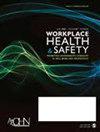在理论指导下对消防员饮食行为的职业影响进行定性探索
IF 2.1
4区 医学
Q1 NURSING
引用次数: 0
摘要
背景:消防员面临着许多固有的职业健康危害,而且罹患多种癌症的风险也在增加,因此保持高峰期健康至关重要。然而,心脏病和中风仍然是消防员因公殉职的主要原因。健康饮食有助于预防心血管疾病和癌症。虽然已经采取了一些饮食干预措施,但尚未观察到持续的改善。了解消防员的职业对饮食行为的影响对于实施有效的干预措施以改善营养状况至关重要。研究结果:影响工作场所饮食行为的主要 TDF 领域包括社会/职业角色和身份;社会影响;环境背景和资源;知识;对后果的信念;记忆、注意力和决策过程;以及情绪。四个新出现的主题与 TDF 领域相对应:"我们是一家人":消防员对自己的工作和同伴有强烈的认同感;"如果你是消防员,你就有了第二份工作":消防员在个人和工作场所的资源方面受到很多限制;"那会让我们丧命":消防员了解除饮食风险之外的大多数职业健康和安全风险;以及 "你累了,筋疲力尽了":结论:由于独特的职业影响,消防员在工作时会遇到许多健康饮食的障碍。这项研究的结果强调了需要干预的特定行为领域和障碍,这可能会增加消防员长期采用更健康饮食习惯的可能性。本文章由计算机程序翻译,如有差异,请以英文原文为准。
A Theory-Guided Qualitative Exploration of Occupational Influences on Firefighters’ Dietary Behaviors
Background:Firefighters face many inherent occupational health hazards and increased risk for several cancers, making peak health essential. However, cardiac events and stroke continue as leading causes of on-duty deaths. Healthy diets promote prevention of cardiovascular disease and cancers. While some dietary interventions have been undertaken, sustained improvements have not been observed. Understanding firefighters’ occupational influences on dietary behavior is vital for implementation of effective interventions to improve nutrition.Methods:The Theoretical Domains Framework (TDF) guided this qualitative study. Nine focus groups of firefighters who work 24-hour shifts and one interview with a fire administrator ( N = 34) were conducted in 2018 across South Carolina, United States.Findings:Predominant TDF domains of influence for workplace dietary behaviors included social/professional role and identity; social influences; environmental context and resources; knowledge; beliefs about consequences; memory, attention, and decision processes; and emotion. Four emergent themes mapped to TDF domains: “We are family”: Firefighters feel a strong identity in their work and with peers; “If you are a firefighter, you’ve got a second job”: Firefighters experience many limitations in personal and workplace resources; “That kills us”: Firefighters were knowledgeable about most all occupational health and safety risks except dietary risks; and “You’re tired, wore out”: Occupational stress influenced nutritional choice making.Conclusions:Firefighters experience many barriers to healthy eating while at work due to unique occupational influences. The findings from this study highlighted specific behavioral domains and barriers to be intervened upon that may increase the likelihood of long-term adoption of healthier dietary practices by firefighters.
求助全文
通过发布文献求助,成功后即可免费获取论文全文。
去求助
来源期刊

Workplace Health & Safety
NURSING-
CiteScore
3.70
自引率
3.80%
发文量
77
审稿时长
6-12 weeks
期刊介绍:
Workplace Health & Safety: Promoting Environments Conducive to Well-Being and Productivity is the official publication of the American Association of Occupational Health Nursing, Inc. (AAOHN). It is a scientific peer-reviewed Journal. Its purpose is to support and promote the practice of occupational and environmental health nurses by providing leading edge research findings and evidence-based clinical practices. It publishes articles that span the range of issues facing occupational and environmental health professionals, including emergency and all-hazard preparedness, health promotion, safety, productivity, environmental health, case management, workers'' compensation, business and leadership, compliance and information management.
 求助内容:
求助内容: 应助结果提醒方式:
应助结果提醒方式:


